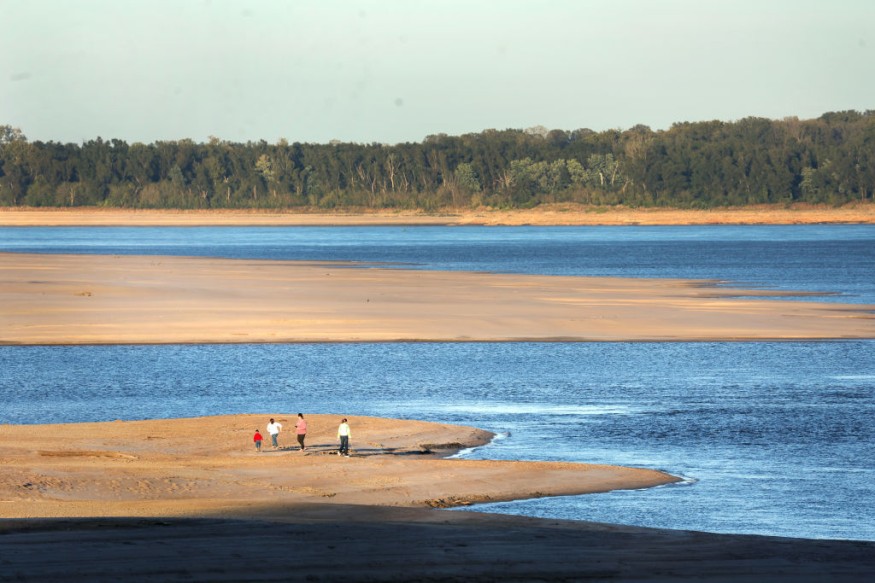The Mississippi River has experienced low water levels due to prolonged drought and scorching heat in the US.
Recently, the Central US experienced high temperatures and challenging heat due to the heat dome. Heat advisories were also issued to alert residents of possible heat-related health concerns.
The region also experienced prolonged drought and dry conditions due to a lack of rainfall. As a result, it has affected the water level conditions in the Mississippi River.
Mississippi River's low water level

Mississippi River has been vital to agriculture, transport, food supplies, drinking water, biodiversity and the ecosystem. As a result, the significant impact on water levels could have economic and environmental consequences.
Last year, the Mississippi River also suffered from historic water levels due to a lack of rain and drought conditions. According to recent reports, it can likely continue in 2023.
The river has shown signs of low water levels due to extreme drought. Without beneficial rainfall, the Mississippi River could cause a serious concern this year.
A rock formation was seen over the river to indicate the concern effect of low water levels. It was used to be accessible via boats. However, everyone can reach it while walking or on foot.
Impact on exports and supplies
The Mississippi River is essential for supplying and transporting soybeans and corn. With low water levels, boats can find it challenging to travel goods in different areas in the US.
When the supplies or transport is affected, it can cause prices to soar. Barge companies have also suffered from the drought in the river. It can become more expensive for shipping companies to travel their goods, causing economic concerns.
In addition, farmers are not spared from the pressing problem in the river. It can affect their crop supplies and needed agricultural water, causing a significant impact on the animal's and crops' health.
Impact on biodiversity and ecosystems
According to recent reports, the river is home to different wildlife animals, including 160 fish species, mammals, 300 bird species and migratory birds.
The historic low water level can impact the animal's biodiversity and population, affecting their food sources and habitat.
With the potential slow recovery of the river, it can likely bring severe environmental consequences. It will be more challenging for aquatic animals to survive or thrive amidst the threat of El Nino, Climate Change and habitat loss.
Drinking water
Meanwhile, experts were working to ensure that saltwater would not affect the drinking water in nearby communities on the Mississippi River. Reports noted that 18 million people depend on the river for drinking water.
The saltwater contamination brings health risks to people who can drink it.
As a result, protecting the river from water levels and decline is essential to prevent possible major impacts on marine ecosystems.
Related Article : Scorching Temperatures Impact Mental Health in US
For more similar stories, don't forget to follow Nature World News.
© 2025 NatureWorldNews.com All rights reserved. Do not reproduce without permission.





